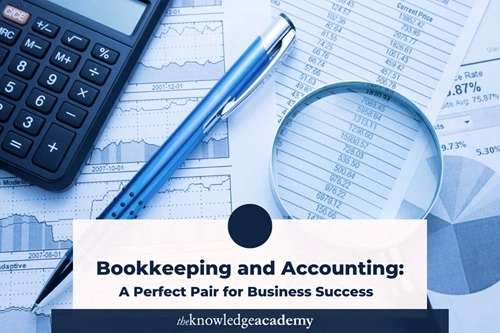Imagine running a company without clearly understanding your financial situation. It would be like driving blindfolded! Taking a Bookkeeping Course and developing Basic Accounting Skills n help you confidently navigate this challenge. Whether your company is a startup, a medium-sized developing firm, or a big company, you cannot negotiate your financials. This is where accounting and Bookkeeping are a dynamic pair that keeps your company running and healthy.
Why Bookkeeping Matters?
Let’s begin with Bookkeeping. Fundamentally, Bookkeeping is the activity of noting everyday financial transactions. It’s about maintaining organisation so that every dollar entering and leaving is recorded. See it as the basis of your financial house. All that follows could fall apart if your records are disorganised or lacking.
For a retail store, for instance, Bookkeeping enables you to monitor sales, expenses, and inventory costs. These data serve you not only in terms of tax compliance but also in terms of trend identification, area for development, and wise decision-making.
The Role of Accounting
Where now, in all of this, does accounting fit? While accounting interprets, analyses, and presents financial data, Bookkeeping is about documenting events. Accountants turn numbers into practical insights. They assist you in projects for the future, examine profitability, and create financial statements.
Let’s imagine, for example, that although earnings are declining, your Bookkeeping shows constant sales. Accounting can help you find the causes of this trend; perhaps your pricing approach has to change, or your manufacturing expenses are growing. Armed with this information, you can take strategic steps to course correct.
How Bookkeeping and Accounting Work Together
The fact is, accounting and Bookkeeping are not different silos. They are closely intertwined. Good accounting begins with accurate Bookkeeping. Accountants cannot guarantee compliance or deliver significant insights without carefully kept records.
Let’s break it down:
- Data Entry: From sales to costs to payroll, bookkeeping records all the raw data.
- Organisation: Bookkeepers classify these transactions to guarantee correct storage and coding of all things.
- Analysis: Accounting uses your data; Bookkeeping maintains that data cleanliness.
The Benefits for Businesses of All Sizes
It is wrong to believe that accounting and Bookkeeping are crucial only for startups or small organisations. However, in reality, every company needs these kinds of procedures. Here is why:
- Small Businesses: Accurate Bookkeeping helps small businesses remain solvent by tracking cash flow, remaining tax-compliant, and planning expansion. Accounting guarantees that using accurate data means making wise decisions.
- Medium-Sized Businesses: Financial complexity rises with business size. While accounting helps control budgets, maximise resources, and scale efficiently, Bookkeeping guarantees this complexity does not result in anarchy.
- Large Corporations: Bookkeeping and accounting support compliance with strict rules, drive strategic planning and protect against financial mismanagement for large corporations.
Common Challenges and How to Overcome Them
Many companies face various challenges when incorporating Bookkeeping and accounting. Let’s discuss them below:
- Time Restraints: Maintaining updated financial records can be time-consuming, particularly for small company owners juggling several roles.
- Accuracy Issues: Data entry or classification mistakes could compound more significant accounting analysis problems.
- Staying Updated: Changing financial rules and tax legislation often makes compliance challenging.
What is the solution to these challenges? Use technology and professional expertise. While hiring qualified accountants guarantees accuracy and compliance, accounting programmes like QuickBooks or Xero can automatically handle many bookkeeping tasks.
The Role of Technology in Modern Bookkeeping and Accounting
Technology has changed business financial management. Real-time financial data access, automatic reconciliation, and even AI-driven insights are made possible by cloud-based accounting systems. These tools simplify the merging of accounting and bookkeeping procedures than they have ever been possible.
A software platform might, for instance, create invoices, automatically classify transactions from your bank account, and compile reports. This helps you concentrate on expanding your company since it saves time and reduces the possibility of mistakes.
Final Thoughts
Accounting and Bookkeeping offer the financial clarity and insights you need to stay compliant, make wise decisions, and meet company objectives. Therefore, never undervalue the potential of this ideal pair, regardless of your business, whether a startup is developing its financial basis or an established corporation is adjusting its plans. Consider The Knowledge Academy free resources to learn more about financial tips and strategies.



















